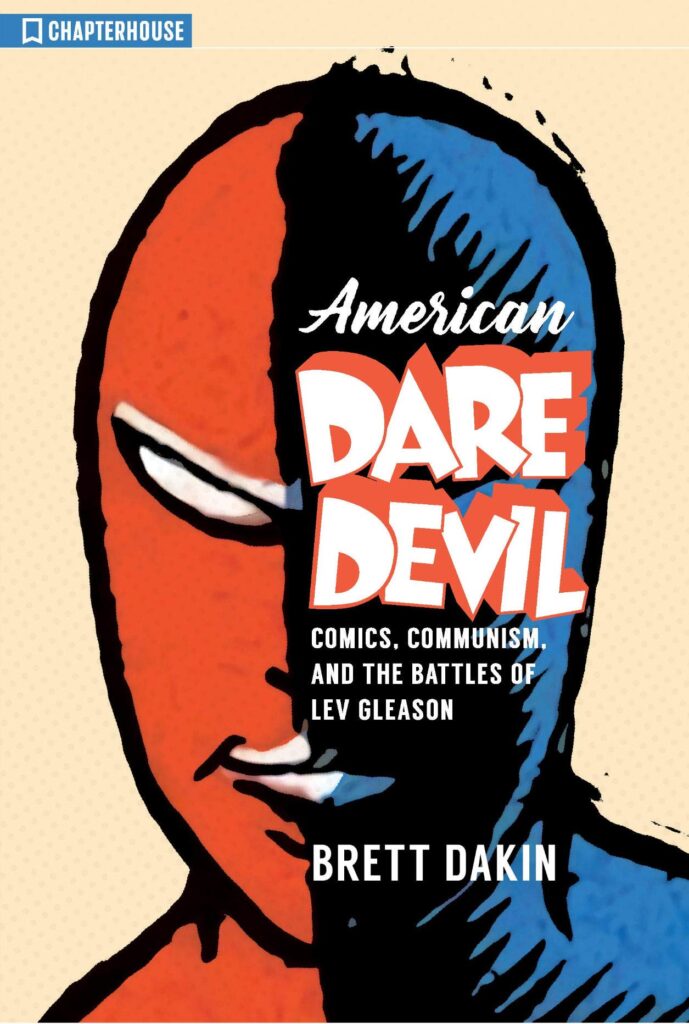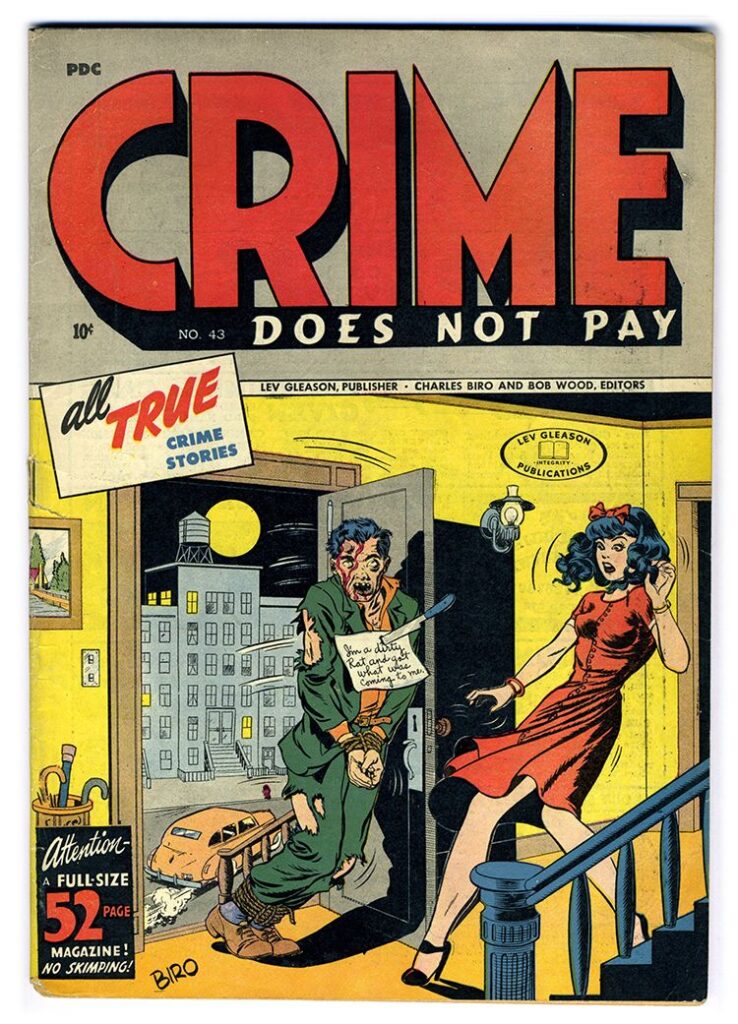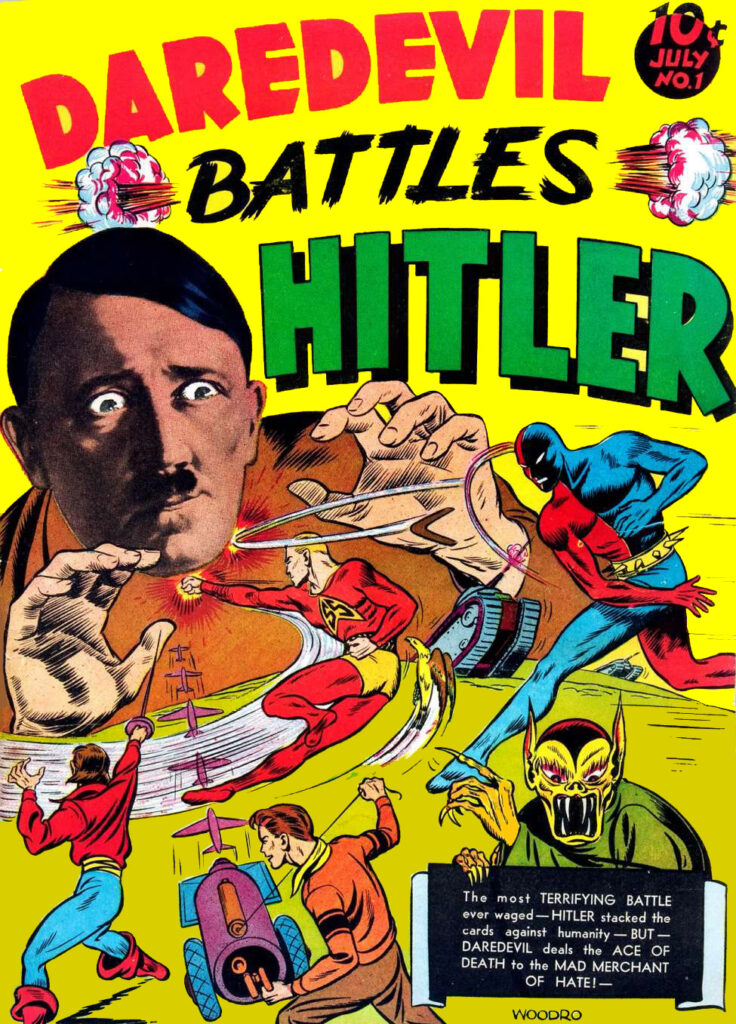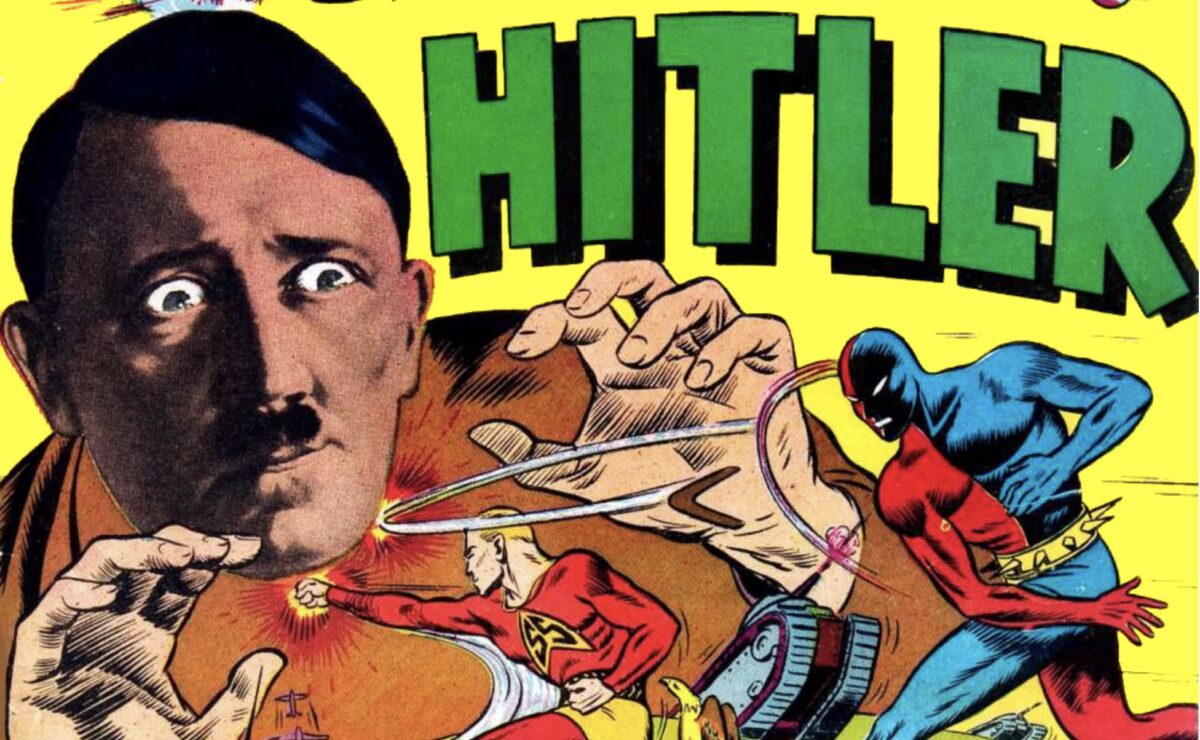Comic books were invented in New York City during the 1930s, the product of a low-key publishing trade combining the popularity of newspaper comic strips with the gloss of the magazine revolution.
That was also a decade of social activism — with the Great Depression at home and the rise of fascism in Europe — and many early comic book publishers happened to be progressive and politically engaged.
Perhaps none more so than Lev Gleason.

AMERICAN DAREDEVIL
Comics, Communism and the Battles of Lev Gleason
by Brett Dakin
Chapterhouse
Lev Gleason was Dakin’s grand-uncle. Some of my favorite biographies are written by those directly related to the subjects. (Recommended examples include The Vapors by David Hill and On Her Own Ground by A’Lelia Bundles.) The strengths of having a personal connection to a biographical subject are on nice display here.
Gleason was no ordinary comic book publisher; he was also a vibrant anti-fascist organizer, a suburban liberal who was eventually targeted by the federal government in the early years of the Red Scare.
Gleason was one of America’s most successful early comic book publishers. At first, like so many others*, he dabbled in superhero comics with heroes such as Daredevil — not related to Marvel’s later incarnation — and Silver Streak. Real-life enemies such as Adolf Hitler met their match in these colorful pages.
But his real notoriety came in adapting to a new genre — the true crime comic book. With his landmark Crime Does Not Pay, readers experienced stark violence, depravity and vice from a more unsettling vantage.

“What was unique about Lev’s contribution,” writes Dakin, “was that, rather than focusing on the detectives and the police, the tales in Crime revolved around the criminals themselves….
“At the end of every issue, it is true, the criminal was caught, and Mr. Crime [the story’s omniscient narrator] reminded the reader of the dangers of a life of crime. But by that point, the reader had come to know the criminal, and perhaps, to sympathize with him.”
This put Gleason in direct opposition with moral reformers of the day, who saw comic books as disreputable and corrupting influences. By the 1950s publishers were testifying to Senate sub-committees in defense of their industry.
But it was Gleason’s involvement in progressive publications and with anti-fascist organizations such as the Joint Anti-Fascist Refugee Committee that got him marked by the House Un-American Activities Committee, “created in 1938 to investigate alleged disloyalty and rebel activities on the part of private citizens, public employees and organizations suspected of having Communist ties.” [source]

Dakin creates a sharp and intriguing portrait of Gleason, taking the reader along on the journey to discovering his grand-uncle’s story.
From a narrative perspective, I found the personal asides to be the book’s greatest strength. If you plunged into the dark corners of your own family tree, what fascinating figure might you discover?
*For more information on the birth of the comic book industry in New York City, check out our podcast Super City: The Secret Origin of Comic Books.


1 reply on “American Daredevil: A New Book on Comic Book Anti-Fascist Lev Gleason”
Thanks so much for the great review! Check out brettdakin.com for more info.